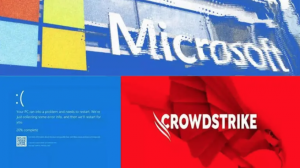More than two million Australians to have internet history scoured by employers

New laws will force millions of working Australians to reveal their personal internet and email history, in a move that’s been labelled ‘ludicrous’.
The expansion of “draconian” security measures proposed in a new bill will allow employers to snoop on the personal internet and email activity of more than two million Australians, a union has warned.
The increased powers have been described as “beyond ludicrous” by the Electrical Trades Union, which will allow employers to slap invasive measures on everyday workers traditionally imposed on high-security sectors at risk of espionage.
Under the bill, 11 “critical infrastructure” industries outlined as potential risks to security include the food and grocery sector, transport, financial services and water and sewerage sector.
It has proposed to apply powers aimed at nullifying potential threats of domestic terrorism on professions such as podiatry, physiotherapy and those operating a life insurance business.
The ETU will on Friday argue at a public hearing in Parliament House against the bill being mandated to extend the AusCheck system of background checks to those working on what is classified as “critical infrastructure assets”.
“This means that vast swathes of the Australian population can be subjected to invasive security checks, eroding fundamental rights to privacy and seriously undermining our civil liberties,” the union will submit.
ETU national policy adviser Trevor Gauld told NCA NewsWire the Security Legislation Amendment Bill is “way too broad and way too vague in its application”.
He said just four industries listed in the bill – hospital, transport, food retailing, medical and health care – account for two million workers alone (according to May 2021 labour force data) who will be “subjected to significant profiling by their employer for matters completely unrelated to their employment under the guise of counter-terrorism”.
Australians who work in industries such as food and grocery will be placed under a similar microscope to those at risk of international espionage, Mr Gauld warned.
“That’s how broad the bill is,” he said.
“An apprentice electrician now somehow poses a terror threat to the power industry; it’s beyond ludicrous.
“Podiatrists, I admit, are pretty important people, but I would never have thought of a podiatrist as a domestic terrorist threat.”
The proposed bill requires employers to conduct thorough checks to “identify each hazard where there is a material risk” and present “an annual report relating to its critical infrastructure risk management program” to its board or governing body.
But Mr Gauld said the expansion of the “draconian legislation” has been presented with minimal consultation from industry leaders.
“It’s not transparent how the rules under these laws will be made, what appeal methods are going to be in place, and what protections will be in place to prevent employers from misusing workers’ private information,” he said.
“It’s absolutely too broad – expanding this program will allow employers to assess employees’ historical driving offences, assault offences and petty theft.
“Is the government seriously suggesting that speeding fines and petty theft are some sort of gateway crime that leads to terrorism? Counter-terrorism should be left to ASIO and those relevant authorities, not to employers.”
A spokesperson for Home Affairs Minister Karen Andrews said the proposed bill will only apply to a “relatively small number of employees” and was more to assess “information relating to an individual’s identity, criminal history, citizenship status, residency status and/or entitlement to work in Australia”.
“Australians aren’t fooled by the ETU’s gross exaggerations; the community rightly expects that those working on our nation’s critical infrastructure are of good character and able to pass a basic background check,” the spokesperson said.
“The AusCheck scheme does not include any provisions for accessing or assessing ‘personal internet and email history’.”
Industries listed in the bill as “critical industries” include:
- communications
- data storage or processing
- financial services and markets
- water and sewerage
- energy
- health care and medical
- higher education and research
- food and grocery
- transport
- space technology
- defence industry









